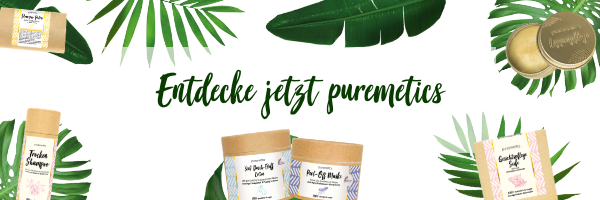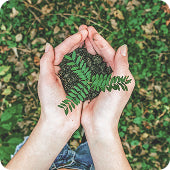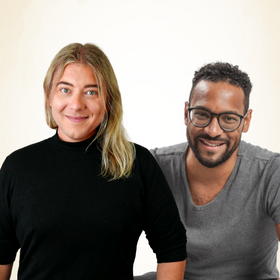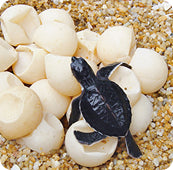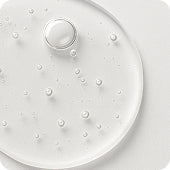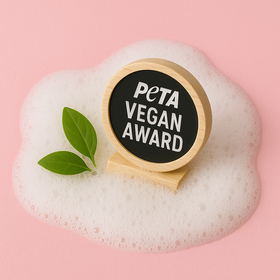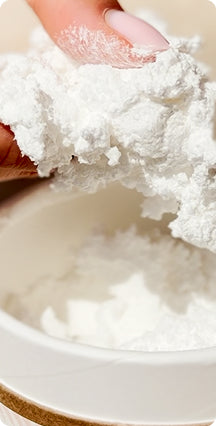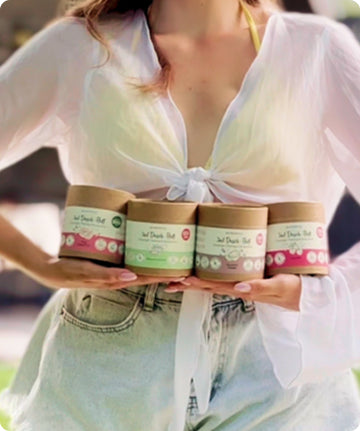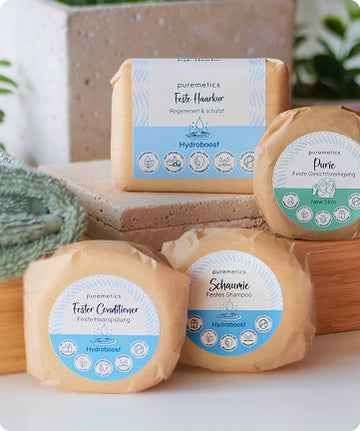What causes pimples and how do I get rid of them?
What causes pimples and how do I get rid of them?

We all know them: pimples. Just in time before an important appointment or date, it must of course sprout again on the forehead, nose and Co.! Sure, there's a difference between a little red dot and a whole face full of craters that actually hurt like hell. However, what all types of pimples and impure skin have in common: they are really annoying! Pimples, whether small or large, many or few, they often eat away at your self-confidence.
Do you sometimes get the feeling that everyone around you has perfect, baby-soft and glowing skin? It's more appearance than reality. Especially through social media, only immaculate faces look at us through the screen, and filters in particular quickly make you unsure. But did you know that acne affects 60% of teenagers? But pimples aren't just a problem for teenagers. They are also widespread among adults. As you can see, you are not alone! Many sufferers are ashamed of their skin and suffer from it. Often we don't even know what to do about it. The good thing is: You don't have to be ashamed of anything! If you still want to do something about those annoying pimples, there are a few ways to promote beautiful skin. From home remedies to a dermatologist.
How do pimples form?
It is important to know the causes of pimples. The most common reason for impure skin is when an overactive sebaceous gland, so-called seborrhea, and a keratinization disorder, so-called hyperkeratosis, come together.
Our skin has sebaceous glands that produce and secrete sebum, called sebum. When it reaches the surface of the skin, the sebum forms a protective layer over the top layer of skin and protects it from drying out. Especially during puberty, the altered hormonal balance boosts sebum production. The sebaceous duct then leads to an overproduction of horny material. The horn material blocks the pores and the sebum can then no longer drain properly. Bacteria on our skin can multiply better through the sebum because they feed on it. The risk of inflammation increases.
This accumulation of sebum causes blackheads, so-called comedones. Open blackheads, also known as black heads, look like black dots on the skin's surface because the sebum oxidizes. Closed blackheads, also known as white heads, develop like open blackheads, except that they are coated and do not oxidize. Both can quickly lead to inflammation. If the inflammation is not relieved, these comedones develop into pustules, i.e. pus-filled sacs, and papules, i.e. nodules. These inflammations are the pimples that we know from our skin. They look very different and some pimples even hurt.
Does Stress Lead to Pimples?
In stressful situations we get nervous and touch our faces. Many start to pinch as soon as they are stressed. As a result, we throw a lot of bacteria around in the face. Some people eat more sweets, smoke, or drink more alcohol when they are stressed. This also promotes pimples. The fact that stress leads to pimples is partly physiological, since the skin produces substances in stressful situations that promote inflammation. In short, yes, stress causes pimples to form, but there are a few other reasons as well.
Pimples or Acne?
Up to 60% of young people are affected by common acne (acne vulgaris). It usually occurs for the first time during or just before puberty and the course is mild in more than half of those affected.
There are different forms of acne depending on their severity. Mild acne, or physiological acne, is when you only have a few pimples and blackheads. This acne disappears on its own after a few years and is easily combated with over-the-counter cosmetics or household remedies.
The progressive form of clinical acne is chronic and more severe. Those affected by clinical acne suffer greatly from many pimples, pustules and blackheads over a long period of time. Acne affects adults too!
What can you do about it?
First of all, one thing is very important: Patience! It takes about two months to see if a new skincare regimen works. Changes in the skin often only show up after 2 rounds of skin renewal, which lasts 28 days. The first step to well-groomed skin is a good cleanse. You should remove dirt and excess sebum from your skin with mild products up to twice a day. Pay attention to ingredients that do not irritate your skin. Avoid products with alcohol or fragrances. Salicylic acid is a suitable ingredient for pimples because it penetrates deep into the skin and removes calluses, sebum and dander.
Even if you now think that you have to rid your skin of annoying oils, you shouldn't dry out your skin either. A light moisturizer is therefore important. If your skin isn't inflamed, you can use scrubs. Fruit acid and enzyme peels help best. Skin care plays a major role in the complexion, especially in the case of pimples in adulthood, which are known as late acne. Many people use products that do not suit their skin type, which can also lead to impure skin. If you are not sure what skin type you have, please have a look at our blog post .
In general, it is good to use products without many fragrances that are suitable for allergy sufferers. Thanks to the mild cleansing, the excess sebum flows off more easily and pimples cannot develop in the first place. When it comes to care products, creams, sun protection and make-up, you should make sure that they are oil-free so that the pores do not get clogged. Water-based products or light oils are better.
When you take care of your pimples, you should always have clean hands and clean facial tissues etc. Cleanliness is important, otherwise more bacteria will get into the skin and new pimples will develop. That's why we also advise against squeezing out pimples!
In the case of pimples, it is also important to change towels and pillowcases frequently and wash them at a temperature of at least 60 °C . In severe cases of acne, you should only use the towel for your face once and then wash it. The pillowcase can promote acne after just three nights, which is why it is recommended to change it frequently.
When do I have to go to the doctor for pimples?
If nothing will help even with a lot of patience, you can contact a trustworthy dermatologist: Inside. Medical preparations containing antibiotics can be used there. They work against cornification and inhibit inflammation. Don't worry, even with long-term use, no resistance develops! Antibiotics are used and, in severe cases, low-dose isotretinoin, which, however, poses risks for women of childbearing age and can damage an embryo. As you can see, medical treatments for acne are not something to be decided on the fly. There are a few risks that need to be discussed calmly. Nevertheless, nobody should be afraid to go to the doctor for severe acne. It is important that you feel comfortable and that you are well informed about all the possibilities and risks in a conversation.
Do I really need medical help for my acne? Many are afraid of too aggressive treatments. But no worry! There's no harm in getting expert advice, especially if you have severe, chronic acne. Dermatologist: inside provide personal advice and can prescribe anti-acne medication if necessary.
How can you prevent pimples?
Since the production of sebum and thus the clogging of the pores and the formation of pimples is partly hormonal, we cannot necessarily influence this. However, there are a few things we can do to prevent pimples.
Tips in everyday life:
- do not touch your face too much: the bacteria on your hands cause additional clogging of the pores and can cause inflammation
- Always wash your hands thoroughly before treating the pimple
- Smoking constricts the blood vessels, so that the skin is less well supplied with blood and pimples form.
- Replace pillowcases more often, as many bacteria collect there
- Change washcloths and towels regularly
- Telephone receivers, mobile phones and computer keyboards should also be disinfected regularly
- It is believed that dairy products promote pimple formation
- reduce stress
- Clean make-up brushes regularly, as this can also get dirt and bacteria on your face
- A healthy diet supports skin health with important vitamins
- Drink a lot! This keeps the skin moisturized and protected
- Too much sugar promotes inflammation, which promotes impure skin
Home remedies for pimples?
In addition to cosmetics, some home remedies also help against pimples. For example healing earth, which contains many trace elements and minerals that work against pimples. As a face mask, healing earth is a good remedy for annoying pimples.
Tea tree oil has an antibacterial and anti-inflammatory effect, which unfolds as an immediate relief on the affected areas. This also combats underground pimples overnight.
Chamomile has an antiseptic effect, cleans the pores and thus helps against inflamed pimples. Chamomile has a healing effect, especially in a steam bath. Simply pour hot water over fresh chamomile blossoms or tea bags and hold your face over it. The steam opens the pores and the sebum can drain off.
Aloe Vera is known for its anti-inflammatory effects. You can apply the gel from the aloe vera plant pure to affected areas of skin and it helps against redness and purulent pimples.
Toothpaste is not a good home remedy for pimples! It can actually make blackheads and pimples worse and irritate the skin.
Conclusion
Pimples can be favored by our hormone balance or stress. We don't have control over all causes of pimples, but with a few lifestyle changes and practical tips, we can improve the appearance of our skin. Mild acne often goes away on its own, but if you have severe acne or stress, you can contact a dermatologist:inside. It is important that you approach your skin care patiently and not too tensely. It's not worth it and you often achieve just the opposite. In any case, you shouldn't be ashamed of your skin, no matter what it looks like!
If you would like to be informed directly about the latest blog posts, please follow us Instagram ! :-)

